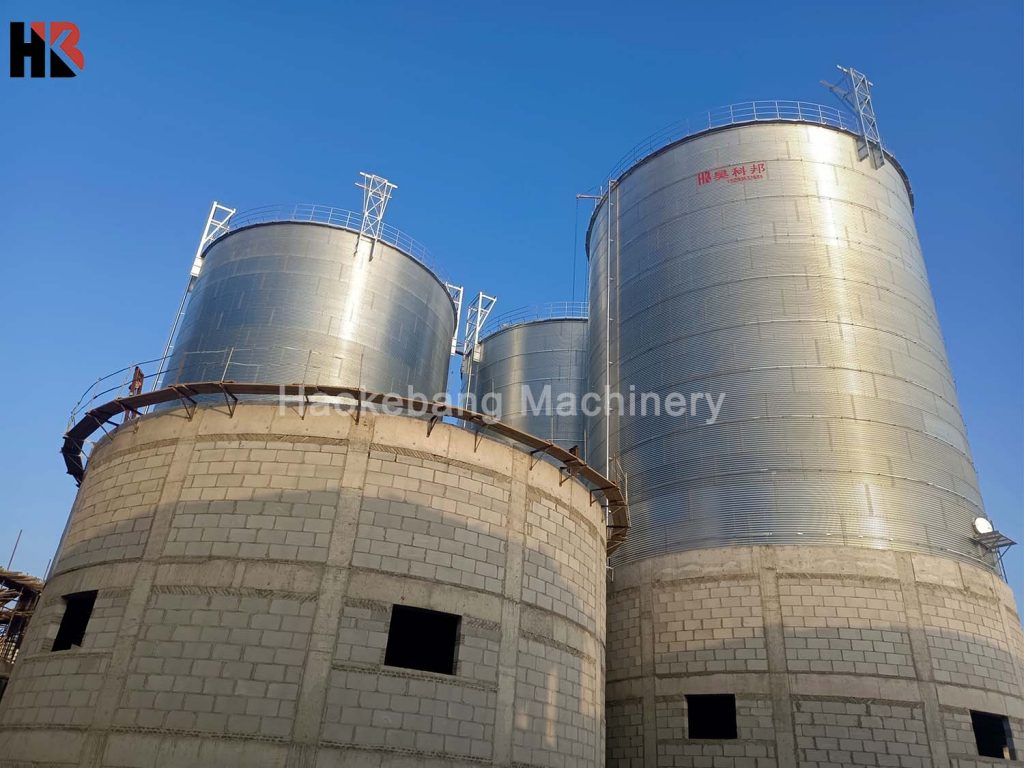Site selection for grain silo directly affects grain storage safety, operating costs, and long-term benefits. HKB, with over 170 global project experiences, has summarized a scientific methodology for site selection to help you avoid common risks and build a cost-effective grain storage base.

Soil Bearing Capacity: The silo area must have a bearing capacity of ≥150kPa (HKB offers free preliminary geological surveys).
Groundwater Level: The water level should be at least 1.5 meters below the foundation base to prevent dampness (addressable through drainage system optimization).
Proximity to Major Roads: Prefer locations within 5km of highway entrances and 10km of railway freight stations.
Internal Traffic Planning: HKB recommends a "U-shaped" layout to shorten grain in-and-out paths by over 30%.
Flood History: Check the 50-year flood level records via GIS; the silo area elevation should be at least 0.5 meters above the historical highest water level.
Pollution Source Distance: Maintain a straight-line distance of ≥3km from chemical plants and waste treatment facilities.
Land Use Type: Confirm that the land is zoned for industrial or storage use (agricultural land requires prior conversion procedures).
Environmental Assessment: The silo should be ≥500 meters from residential areas with dust emission concentration <20mg/m³ (HKB's pulse dust removal system meets this standard).
Predict local wind speed and changes in temperature and humidity to optimize silo orientation (HKB suggests the main axis angle with the prevailing wind direction be ≤30°).
Analyze historical data to estimate peak truck traffic and design buffer zones to avoid congestion (reference standard: reserve 8 loading/unloading spots per 10,000 tons of storage capacity).
Cost Item Self-Build Assessment HKB Optimized Solution
Land Acquisition Cost 100% Recommend repurposing idle factories (save 40%)
Infrastructure Construction Period 6-8 months Modular foundation (reduce to 3 months)
Risk: Logistics costs in remote areas may increase by 25%-40%.
HKB Solution: Provide a "full - cycle cost accounting table" to compare land costs with operating expenses.
Planning Advice: Reserve 20%-30% expansion space (HKB silos support horizontal expansion through modular connections).
Customized Solutions:
Wheat/Corn: Prioritize dry areas (humidity <65%).
Rice: Requires an additional pest - control isolation zone (width ≥50 meters).